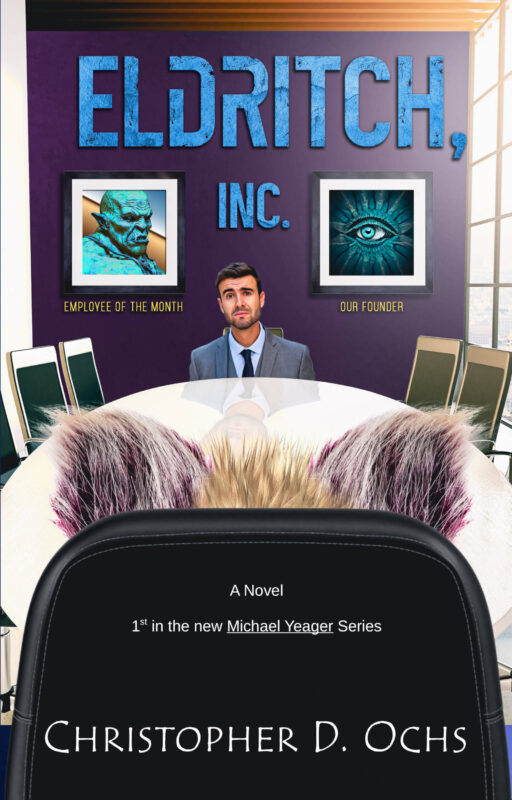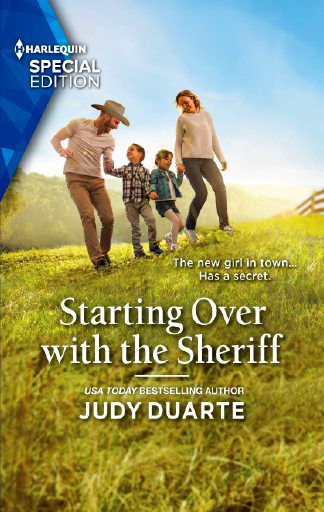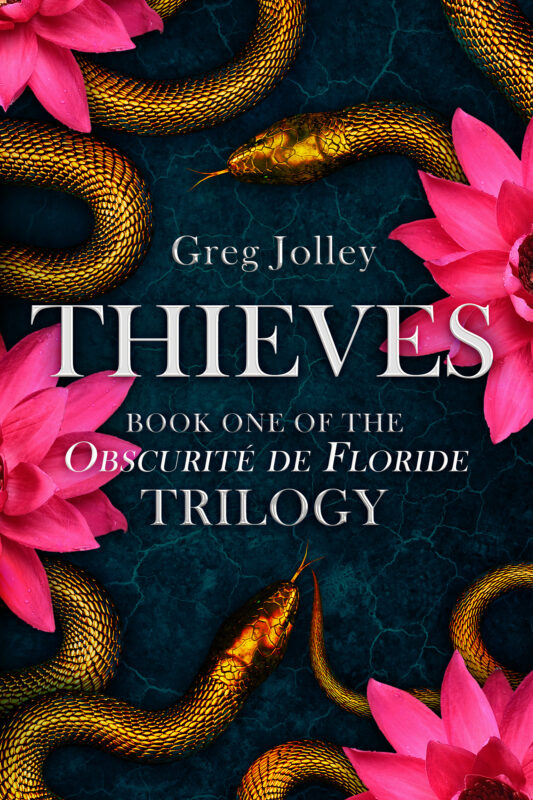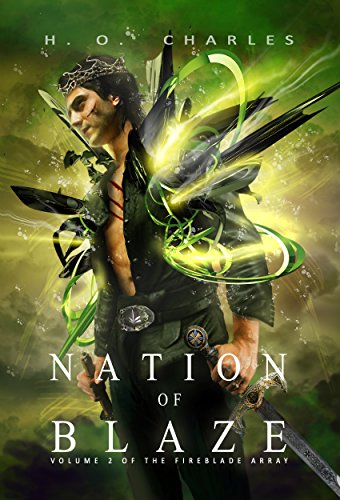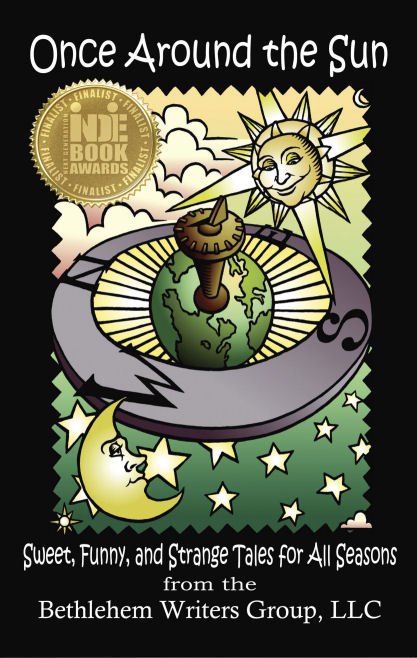Counting Down
May 19, 2011 by A Slice of Orange in category Archives tagged as Black Opal Books, Member At Large, Monica Stonerby Monica Stoner, Member at Large
My book releases May 25. The original release date was planned for May 17, until my editor asked if it could be delayed a week. Since I wasn’t married to any particular date, I thought why not? It was only a few more days. Only a few. Well, okay, eight more days. I could handle an extra week.
Seems I forgot what it was like to sit through that last week of school before summer vacation. Actually, it’s more like the last week before a litter is due to whelp. The mama dog gets bigger and bigger, and you rush around setting up whelping boxes, sterilizing equipment, putting everyone on warning. Then you wait. And wait. Eventually the future hopefuls come squirming out and you can waste the next nine weeks cooing over them.
Doesn’t quite work that way with a book, of course. First there’s the contract to review, then the edits. You find out your deathless prose isn’t quite as perfect as you thought, and that a misplaced comma really can make a difference. Not to mention you’ve bounced point of view around so much your paragraphs have whiplash.
If you’re fortunate enough to have cover input, that’s one more detail to consider. Then there’s the blurb, the cover copy and don’t forget the dedication. These days you also have to have a web presence and be ready to go on a blog tour introducing yourself and your book to the literary world. All this while going about your mundane life of job, housework, family.
I haven’t had so much fun in years.
It helps to have an editor who listens when I explain why my people did what they did. The amazing support of other writers lights up the gloomiest of days. And then, of course, the reviews. I have to share my first reviews (click here) since they had me grinning like a loon for days.
In the midst of this whirlwind of fun, I’m working on a new story. Here’s where raising dogs and writing part ways. You whelp a litter, and you can spend the next year or so raising it out. You have a book published, you better be working on another one while you’re basking in the glow and doing the “fun stuff†or you might have a long time between glows. So I’m typing away, in between sneaking pictures at my cover.
Wow, I’m a writer.
Writing as Mona Karel, Monica’s first book, MY KILLER MY LOVE, will be released on May 25, 2011 from Black Opal Books.
Build A Writing Network With LinkedIn
May 18, 2011 by A Slice of Orange in category Archives tagged as 2011 Romantic Times Convention, Bob Mayer, Dean Koontz, Facebook, how to, Jenny Hansen, Kristen Lamb, LinkedIn, LinkedIn Answers, Louisa Bacio, Social Media, Twitter, Who Dares Wins Publishingby Jenny Hansen
Everyone is talking about Social Media and I’ve got several friends scratching their heads going, “What does that even MEAN? And why do I need so many DIFFERENT KINDS??â€
(Note: Prepare for the CAP-bold-fest, I just downed half a pot of coffee…)
There’s a simple answer to “why so many?†You want to go to where your people are. It’s as simple as that.
Maybe you want to network with dairy farmers or high school kids. It’s a pretty good bet they’re going to be hanging out over on Facebook rather than Twitter. These are two demographics that have proven to be firmly grounded on Facebook. Remember, Facebook is focused on hooking up with the people you already know.
Twitter and LinkedIn are both geared toward hooking up with the people you want to know.
(Like editors and agents…just sayin.’) If you want to BUILD your network, you are simply going to do it faster on Twitter and LinkedIn.
Twitter, according to Social Media expert Kristen Lamb, is like one big cocktail party. You can “walk through†and hear snippets of all kinds of conversation. And, as long as you aren’t creepy about it, you are invited to join in. How cool is that for all us busybodies, er…I mean writers. (slinking to the next paragraph)
LinkedIn is more like attending a big conference – you’ve got people you’re scheduled to meet with, and they know people who know people. (All these conference types are even MORE impressed if you dress nicely and have a creative name badge. In LinkedIn terms that means fill out your profile as fully as you can.)
There are people you might meet at any event or conference that will be important in your career. It’s a really good idea in today’s world to ask these people which platform they’re on so YOU CAN FIND THEM! Better yet, get their email address. You can use it to find them on LinkedIn, Facebook OR Twitter.
If you meet someone who says they’re on Facebook and they are your dream editor, make tracks to hook up with them over there. Ditto to Twitter and LinkedIn. It is always a good idea to follow up quickly so there’s hope that they still remember that you sat in the row in front of them during the Dean Koontz event at the Romantic Times Convention.
Note: Bob Mayer and the team at Who Dares Wins Publishing are offering some really good workshops in May and June about how to really get the most out of a conference, and how a writer can market. They sound awesome, but I’ve already decided to learn how to write about sex in May from our own Louisa Bacio.
Why LinkedIn?
I could give you the corporate version: LinkedIn is a very easy passive way to build your social network with individuals that you might already know, as well as those you meet in the course of your networking events.
Bleck, bleck, bleck.
Even though it’s true, it’s bland and doesn’t cover the real magic: Through LinkedIn’s Status Updates, Reading Lists, Groups and the amazing Answer feature, you will have the opportunity to be a solution provider.
Now THAT’S sexy. Every opportunity you get to be a solution provider is golden.
Every time a writer is offered a free, easy chance to establish themselves as an expert in any given field, in my humble opinion, they need to RUN to take advantage of this. LinkedIn gives you the chance to both ask questions and provide answers, and look stellar in the process.
Click here to find out more about LinkedIn Answers.
In LinkedIn you can have your entire writing resume on display, along with recommendations of your work, even as you network and build your platform.
LinkedIn can be a Traffic Firehose
Check out this Chart of the Day from a Business Insider article that was published earlier this month. That’s some impressive stuff. LinkedIn is adding features all the time that are targeted at driving traffic. Like every other social media company, they want to be your platform of choice.
(Are you salivating yet? This is BIG.)
Getting started
- Go to http://www.linkin.com/
- Choose your LinkedIn account type
Note: Anyone can sign up for a free Basic LinkedIn account. Free accounts allow you to invite available connections, manage your own profile, join Groups and sign up for LinkedIn events.
Free accounts do not allow you to send InMails (which let you send mail to anyone whether you are connected or not), see all LinkedIn contacts or organize your contacts beyond a basic name listing.
For the LinkedIn users that want to use the application more fully or for targeted tasks like job recruiting, there are several other business options available for a monthly charge.
How to add connections
You can allow LinkedIn to check your existing address books for your current email addresses or enter your contacts manually. It is easiest to allow LinkedIn to comb through your current address books for your various email applications (Gmail, AOL, etc). You will get a list of the people you know who are already using LinkedIn and can invite them to connect with you.
Note: If you don’t want to do this when you begin, you can return later to the Import Contacts option, which is located inside the People You May
Know area (it’s always available in the upper right corner of your LinkedIn home page).
What do you do once you’re connected?
- Listen
Listening in LinkedIn means watching the Status Updates that show on your home page each day and commenting on them. Particularly if you are in the market for an editor, agent, or new job, these updates are a treasure trove of conversation openers. - Read
In LinkedIn, there is an application to discuss and recommend what you are reading. When you use this application, it will update your home page. People will comment, and you can do the same on the books they recommend. Part of why we love books is BECAUSE they are so easy to bond over. - Browse
Be sure to look around in LinkedIn. You’ll come across the greatest stuff just poking around. Explore the LinkedIn toolbar at the top of the page to see your Connections, Update your profile, or look for Jobs. Incidentally, all the recruiters I know say they find the best talent through LinkedIn. I found my current job through LinkedIn, as a matter of fact. - Find Groups that have other people with the same interests as you.
Some people take an opposite track and join Groups with members that have knowledge that you WANT. On the right hand side of the LinkedIn toolbar, there is a search that defaults to “People.†Hit the drop-down and choose Groups. Type in your interest, whether it is writing, parenting or gardening. Trust me, you will find cool groups.
Other helpful tips:
- All the usual rules of social media apply – excessive marketing, stalking and lying are not appropriate. (Yes, I know it’s your resume – you STILL have to be honest.)
- You do not have to be introduced to anyone you are in a Group with.That means that you can request connection with ANYONE in any group you belong to. Read above…I’m not encouraging anyone to get their weird stalky vibe on, but this is the perfect chance to go where your target audience is and rub elbows with them. I’ve met amazing people this way.
- Browse the People You May Know section on the right side of your screen every few weeks. New people show up in there based on things like who has joined LinkedIn or which searches you’ve run. I nearly always find someone I’d been wishing to have as a connection.
There are a gajillion things I’d like to tell you about the program but Goal One is to get you signed up if you’re interested and give you time to get comfortable. You can also feel free to ask questions about the program in the comments below.
If you need more help to get set up, here is a link that gives great step-by-step instructions. 🙂
In the meantime, how many of you are on LinkedIn already? Do you like or dislike it? What do you love-love-love or hate-hate-hate about the platform?
Take care,
Jenny
e-maginings: Internet Filter Bubbles & MBI’s
May 17, 2011 by A Slice of Orange in category Archives tagged as e-maginings, internet filters, Linda McLaughlin, mammography, TEDI haven’t posted here in a while, but yesterday I happened to discover two very interesting TED conference videos.
The first is Eli Paliser on “internet filter bubbles”, an unintended consequence of the personalization of the web. It should be of interest to all of us who use the web for research.
http://www.ted.com/talks/eli_pariser_beware_online_filter_bubbles.html
And Dr. Deborah Rhodes talk on mammography is of importance to all women, regardless of age:
http://www.ted.com/talks/deborah_rhodes.html
What have you discovered lately?
Linda Mac
blog: http://flightsafancy.blogspot.com/
Oh Heck! Where Have all the Booksellers Gone?
May 15, 2011 by A Slice of Orange in category Archives tagged as audio books, book seller, book stores, retail
I just read a book improbably titled The Guernsey Literary and Potato Peel Pie Society. I say improbable because my editors always advised that less is more when it comes to titles. Readers, after all, only give you seconds to catch their interest. It took me longer than that to sound out all the syllables in the aforementioned book. But all the seconds in the world would not have convinced me to read this except that it was recommended by an extraordinary person: a bookseller.
Which brings me to the lament the day and it goes like this: I miss real, true, dedicated booksellers like Mr. Bruce Raterink, Barnes & Noble, Virginia. He knows exactly what I like to read and what I write (contemporary thrillers and mystery, true crime) but he also instinctively knows how to broaden my reading horizons. Considering I live in Los Angeles and he lives on the east coast his talent goes beyond gift to pure wizardry.
The Guernsey Literary and Potato Peel Pie Society, written with great verve, exquisite sensitivity and deceptive gentility, is set in a time of great sorrow, distress and courage – Europe’s recovery after World War II. Juliette, the heroine, is a writer and the cast of characters are all readers (of sorts). A bookseller is early engaged to attempt to find a book in the ruin that is England. The intersection of my normal read and this book pivoted on excellent characterization and astounding pacing.
But it was Juliette’s praise of booksellers – selfless people willing to endure long hours and no pay simply for the love of books and their readers – that gave me pause. Booksellers have played an intimate role in my professional and personal growth and I fear I have met the last of them.
Over twenty years ago Michelle Thorne enticed me to do book signing at her independent store. Unlike my first cool and corporate experience, signing at Bearly Used (and new) Books was like a riotous party at the Mad Hatter’s table – always joyous. My books were piled in an optimistic pyramid as if Michelle knew they would sell by the bushel. There were cookies, praise, decorations, readings. Michelle was a social director, best friend, stern mom and cheerleader wrapped into one. She made me confident about writing when I was anything but.
Robin Elder was a beautiful red-haired woman who moved gracefully through her store lined with English mysteries, intrigues and thrillers and a select few American authors. I was thrilled to find my books on the shelves of her bookstore/tearoom. Having just moved, finding Robin made me feel as if I was home. But what I remember most is that she embraced my youngest, my curious little boy who preferred books to soccer in a new neighborhood that didn’t have much use for the athletically challenged. For over a year, before she was forced to shut her doors, she discussed books with him and allowed him to read as long as he wished, settled on a small window seat, kept company by her cat. He is now a playwright. His ability to write may be somewhat genetic, but his love of a good story was nurtured within the walls of a small store stuffed with unique books and overseen by a perpetually thoughtful bookseller to whom words meant the world.
Corki Brucellas, the energetic corporate angel who launched my last five books at my local Borders was a literary earth mother who believed each novel was a special delivery. She could discuss individual author’s strengths and weaknesses. Knowing how fragile a writer’s ego could be, she never voiced the later. Now my local Borders is closed. Corki will always be a friend but it is sad she will not be a bookseller any longer.
Of all the booksellers who have helped me, nurtured me, celebrated with me, it is only Bruce who continues to ply the trade. The others have moved on to other things, their small stores unable to turn a profit for their wonderful owners, the corporate stores failing to recognize how vital the roll of a true bookseller – not a clerk – is. And, yes, in this age of internet, IM and Twitter, good reads are recommended by people I’ve never met, my books are reviewed and criticized but there are few left who will look a reader in the eye, pluck my book from a shelf, press it into someone’s hand and say “I have read this; you will love itâ€.
In my own backyard there is no one left who will call me by name when I walk into their store, I will no longer sign my name on the flyleaf of my book, I will not sit beside a pyramid-stack of real paper in anticipation of meeting people and being cheered on by the bookseller.
Oh heck, I miss them. They will never be back because a good bookseller is inefficient and unprofitable. A good bookseller takes too much time to read, to understand, to seek, to find, to chat, to listen to author and reader alike. I am happy that at least one of them is still standing. He makes me lists of books to read and bucks me up when the writing is slow. He picks out passages of my work that he believes are particularly inspired which makes me work all the harder. Because he is there, I write and I read and I am better at both. Lucky me to know him and others like him and lucky Virginians to still have Bruce to press a book in their hands and say “I loved this, so will youâ€.
Contest Judge Tells All
May 14, 2011 by Marianne H. Donley in category Archives tagged as Charlotte Carter, Contests, Love Inspiredby Charlotte Carter
Throughout the year, I judge quite a few entries in unpublished writing contests. I’m thrilled when I find a really well written entry. I’ve been known – at least once – to give a perfect score. I’ve even referred one entrant to my agent.
But I dread finding mistakes that drive the score down. Hoping to help others learn what NOT to do, here are a few examples.
One author wrote wonderful, creative, original metaphors. They were great! Except there were too many, sometimes three on a page. I got a bad case of metaphor-itis and had to lower the score.
Actions cannot happen simultaneously. Try to picture what this character is doing: She stood and carried the baby as she followed the doctor down the hall. You cannot stand and carry and follow all at once. These actions should be in sequence. Standing, she lifted the baby into her arms and followed the doctor.
One author had clearly been told to use the 5 senses. Excellent idea. But not all in one paragraph and then totally forgotten throughout the rest of the manuscript. Weave the 5 senses into every scene so the reader shares the same experiences as the characters.
Dialogue is good. Dialogue by itself is not enough to tell an emotional story. It’s talking heads.
Read your entry carefully, slowly, aloud, or have someone else do it for you. Silly mistakes and typos can cost you points.
Commas are your friends. Or rather, properly used commas make your sentences understandable. Leave them out and the reader, or judge, has to continually backtrack. Commas used willy-nilly are just as confusing. Don’t guess. Get someone to help you.
You do not fool a judge by not starting a new page for a new chapter. We know you’re trying to squeeze every word into the limited number of pages that you are allowed. It doesn’t help.
Your synopsis, no matter how short, has to include the ending. Don’t make the judge — or an editor — guess how the story is going to come out.
Books that leave you smiling
from Love Inspired
Big Sky Reunion, available now
Big Sky Family, 11/2011
http://www.charlottecarter.com/
Affiliate Links
A Slice of Orange is an affiliate with some of the booksellers listed on this website, including Barnes & Nobel, Books A Million, iBooks, Kobo, and Smashwords. This means A Slice of Orange may earn a small advertising fee from sales made through the links used on this website. There are reminders of these affiliate links on the pages for individual books.
Search A Slice of Orange
Find a Column
Archives
Featured Books
ELDRITCH, INC.
Who knew preventing Armageddon required so much on-the-job training?
More info →STARTING OVER WITH THE SHERIFF
Starting anew? But what if he learns the truth?
More info →THIEVES: Book One of the Obscurité de Floride Trilogy
The hunt is on . . .
More info →ONCE AROUND THE SUN: Sweet, Funny, and Stranges Tales for All Seasons
Stories about winter, spring, summer and fall, and seasons of life, seasons of love, and even seasons of discovery.
More info →Newsletter
Contributing Authors
Search A Slice of Orange
Find a Column
Archives
Authors in the Bookstore
- A. E. Decker
- A. J. Scudiere
- A.J. Sidransky
- A.M. Roark
- Abby Collette
- Alanna Lucus
- Albert Marrin
- Alice Duncan
- Alina K. Field
- Alison Green Myers
- Andi Lawrencovna
- Andrew C Raiford
- Angela Pryce
- Aviva Vaughn
- Barbara Ankrum
- Bethlehem Writers Group, LLC
- Carol L. Wright
- Celeste Barclay
- Christina Alexandra
- Christopher D. Ochs
- Claire Davon
- Claire Naden
- Courtnee Turner Hoyle
- Courtney Annicchiarico
- D. Lieber
- Daniel V. Meier Jr.
- Debra Dixon
- Debra H. Goldstein
- Debra Holland
- Dee Ann Palmer
- Denise M. Colby
- Diane Benefiel
- Diane Sismour
- Dianna Sinovic
- DT Krippene
- E.B. Dawson
- Emilie Dallaire
- Emily Brightwell
- Emily PW Murphy
- Fae Rowen
- Faith L. Justice
- Frances Amati
- Geralyn Corcillo
- Glynnis Campbell
- Greg Jolley
- H. O. Charles
- Jaclyn Roché
- Jacqueline Diamond
- Janet Lynn and Will Zeilinger
- Jaya Mehta
- Jeannine Atkins
- Jeff Baird
- Jenna Barwin
- Jenne Kern
- Jennifer D. Bokal
- Jennifer Lyon
- Jerome W. McFadden
- Jill Piscitello
- Jina Bacarr
- Jo A. Hiestand
- Jodi Bogert
- Jolina Petersheim
- Jonathan Maberry
- Joy Allyson
- Judy Duarte
- Justin Murphy
- Justine Davis
- Kat Martin
- Kidd Wadsworth
- Kitty Bucholtz
- Kristy Tate
- Larry Deibert
- Larry Hamilton
- Laura Drake
- Laurie Stevens
- Leslie Knowles
- Li-Ying Lundquist
- Linda Carroll-Bradd
- Linda Lappin
- Linda McLaughlin
- Linda O. Johnston
- Lisa Preston
- Lolo Paige
- Loran Holt
- Lynette M. Burrows
- Lyssa Kay Adams
- Madeline Ash
- Margarita Engle
- Marguerite Quantaine
- Marianne H. Donley
- Mary Castillo
- Maureen Klovers
- Megan Haskell
- Melanie Waterbury
- Melisa Rivero
- Melissa Chambers
- Melodie Winawer
- Meriam Wilhelm
- Mikel J. Wilson
- Mindy Neff
- Monica McCabe
- Nancy Brashear
- Neetu Malik
- Nikki Prince
- Once Upon Anthologies
- Paula Gail Benson
- Penny Reid
- Peter J Barbour
- Priscilla Oliveras
- R. H. Kohno
- Rachel Hailey
- Ralph Hieb
- Ramcy Diek
- Ransom Stephens
- Rebecca Forster
- Renae Wrich
- Roxy Matthews
- Ryder Hunte Clancy
- Sally Paradysz
- Sheila Colón-Bagley
- Simone de Muñoz
- Sophie Barnes
- Susan Kaye Quinn
- Susan Lynn Meyer
- Susan Squires
- T. D. Fox
- Tara C. Allred
- Tara Lain
- Tari Lynn Jewett
- Terri Osburn
- Tracy Reed
- Vera Jane Cook
- Vicki Crum
- Writing Something Romantic
Affiliate Links
A Slice of Orange is an affiliate with some of the booksellers listed on this website, including Barnes & Nobel, Books A Million, iBooks, Kobo, and Smashwords. This means A Slice of Orange may earn a small advertising fee from sales made through the links used on this website. There are reminders of these affiliate links on the pages for individual books.



